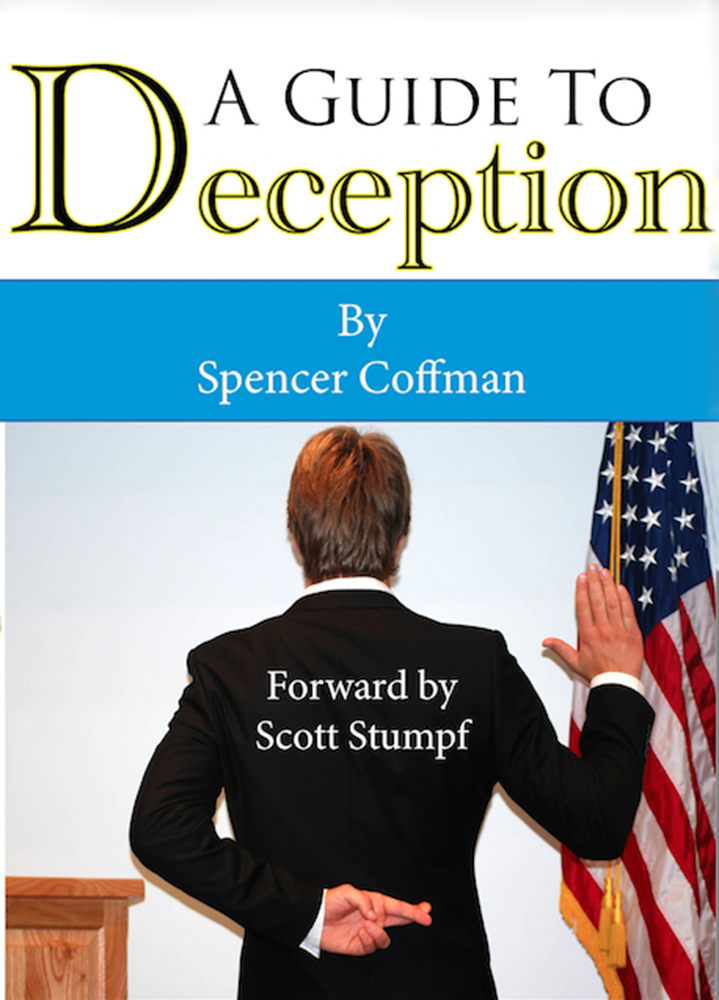By Kaitlin Leither

Lies are a fact of life, whether we like it or not.
From the child making excuses as to why the dishes are not clean to the bureaucrat swearing that all funds were accounted for, lies are everywhere. This is what makes Spencer Coffman’s book “A Guide to Deception” such a handy piece of reading.
With less than 100 pages and only six chapters, “A Guide to Deception” can be read in a single sitting. True effects, however, will take much longer.
While not necessarily a page turner, “A Guide to Deception” offers more information in 70 pages than most people will realize they are reading.

The primary purpose of his book is to educate, and this is apparent immediately. With 10 pages of references, Coffman’s book is obviously intended for education. Its educational aspects do not, however, make it uninteresting. Facts here are surprising, but important. With facts like “the average person tells two to three lies in 10 minutes of conversation” readers will find plenty of entertainment in the information. The true entertainment, however, comes from putting the information to use.
While the book meanders through many facts on the definition and causes of deception, when it gets to evidence of deception to look for it is indeed helpful. With an appendix for easy reference, Coffman sets “A Guide to Deception” up to be an easy reference for anyone who wishes to know when they are being lied to.
Lies can be a necessity
Coffman points out throughout this book that some people do not want to know when they are being lied to. In Chapter 1 Coffman discusses the purposes of lies. “To put it simply, lies are what make the world make sense,” Coffman says. He furthers this concept of the necessity of deception in Chapter 3 while discussing the two different types of lies, “low-stake lies are fun and social, high-stake lies are draining and eventually lead to pure exhaustion mentally, physically, and emotionally.”
Like Coffman, many people can acknowledge the necessity and harmlessness of little white lies (such as “the meal was delicious” or “no, you don’t look fat in that dress”). Coffman notes it is the “high-stake lies” that can cause trouble.
Use this information wisely
Coffman notes with the differentiation between big lies and little lies that there are many reasons people do not actively look for all deceptions, even if they know how. He offers a word of caution to readers who master detecting deceptions: “Before you ever call someone out in a lie, ask yourself, ‘Does the truth really matter in that instance.’” Sometimes a little white lie hurts no one.
For more information and to purchase the book, check out spencercoffman.com